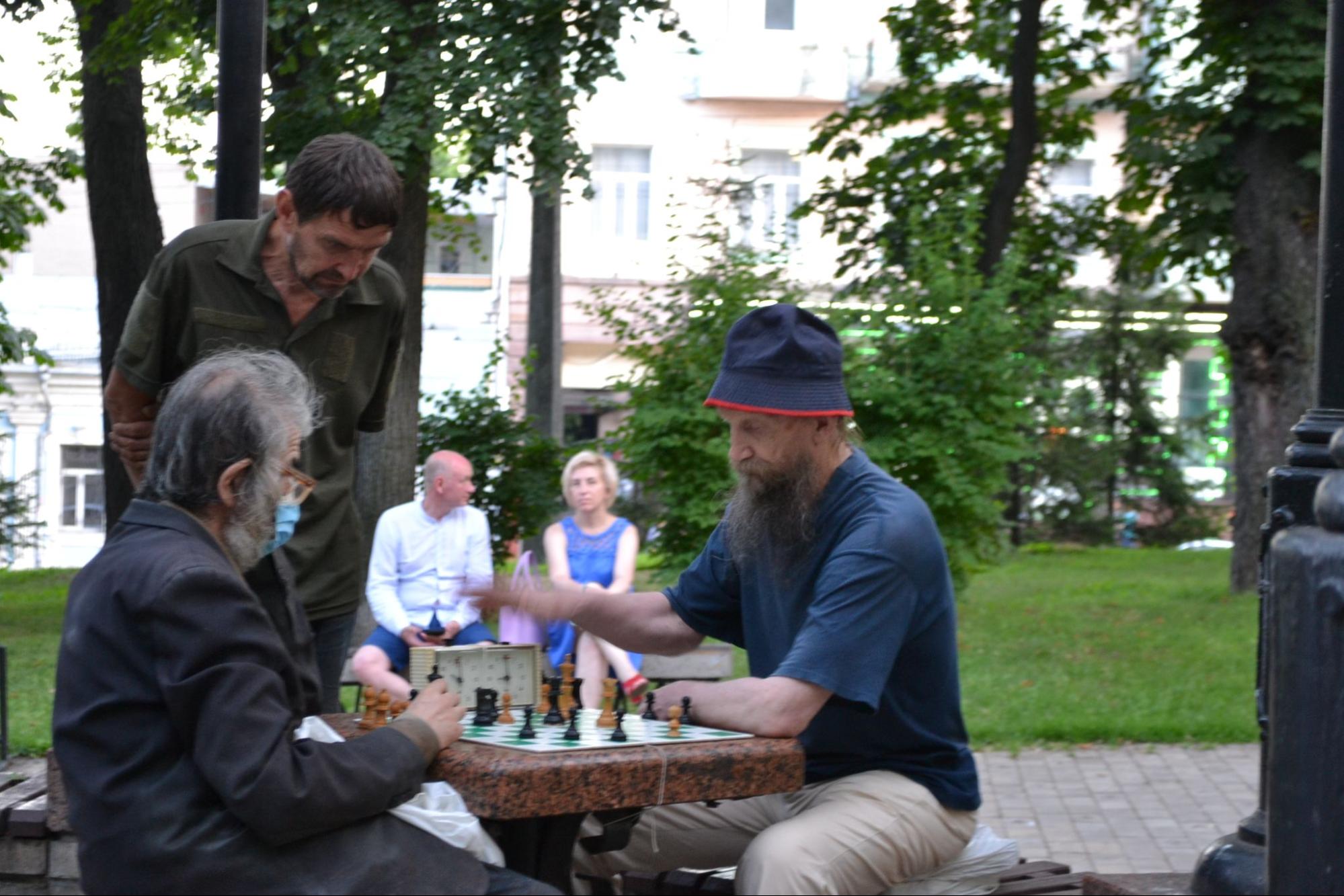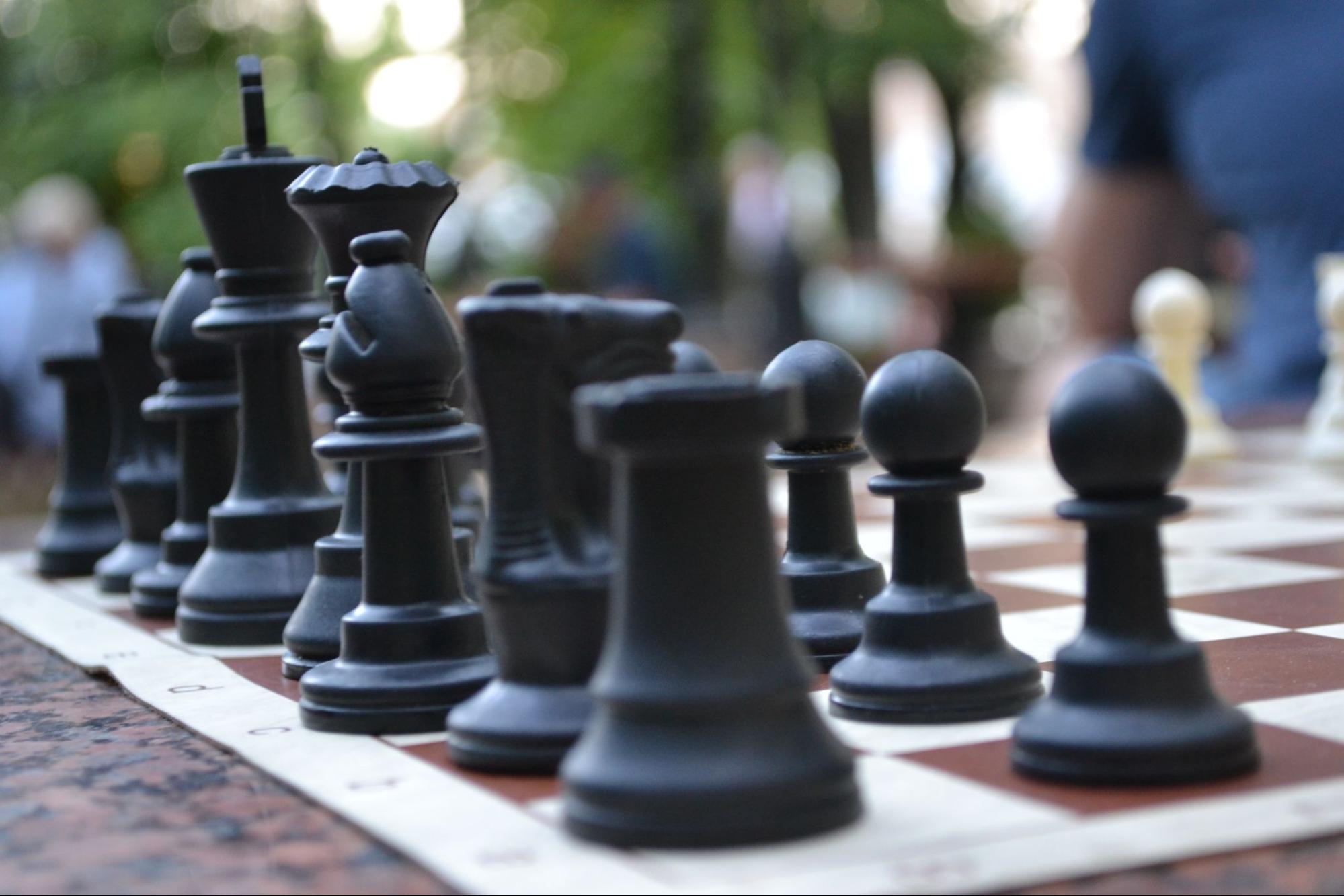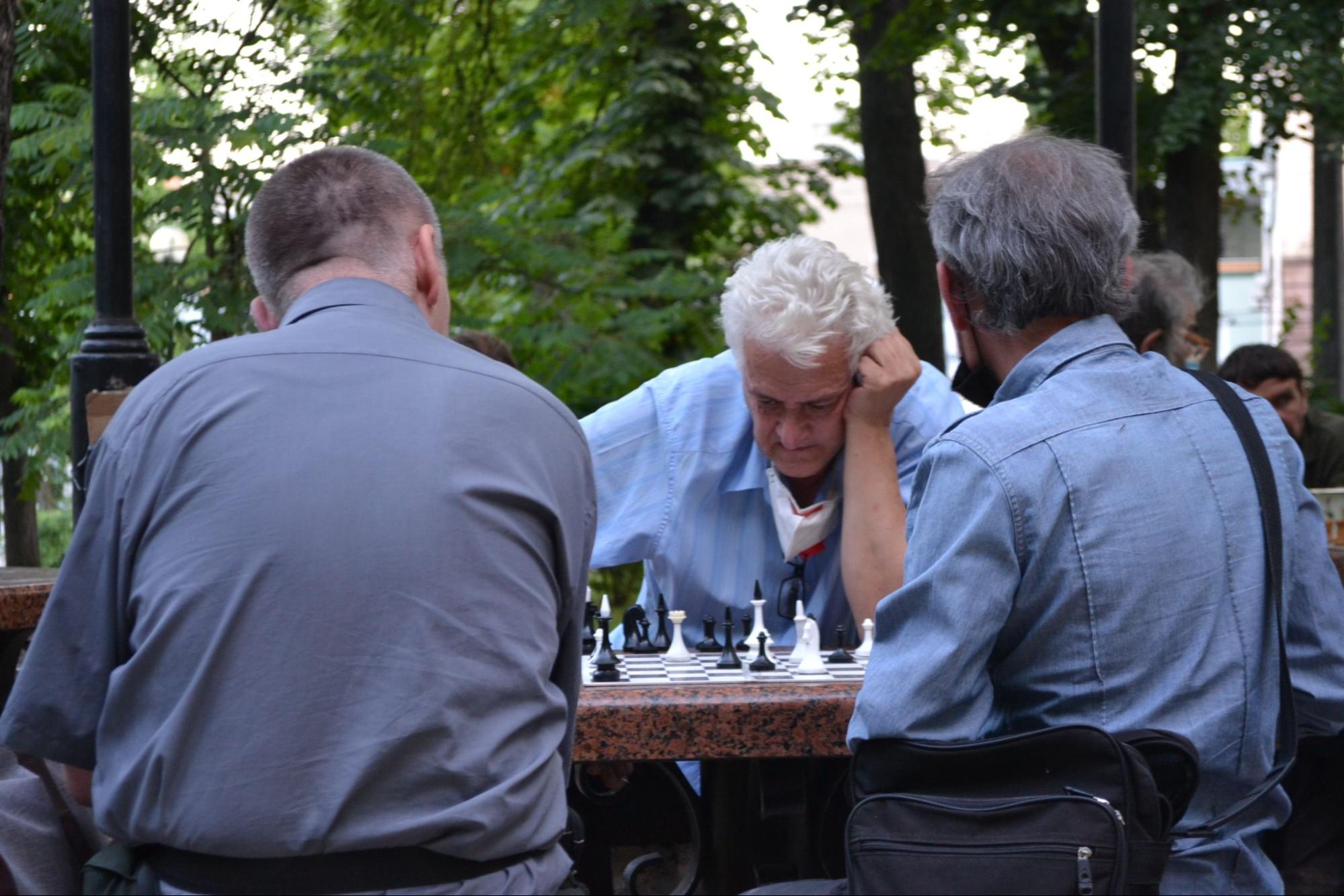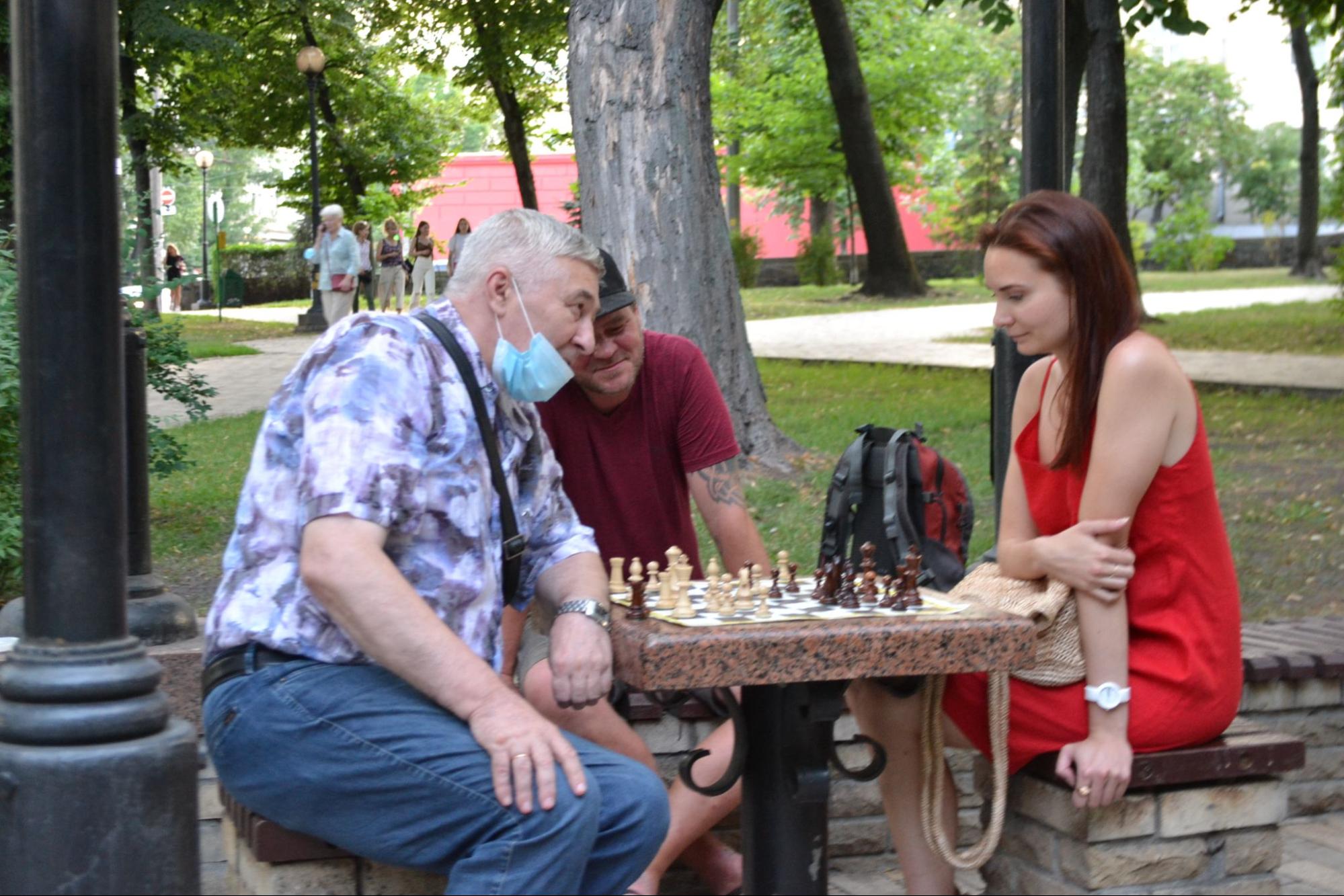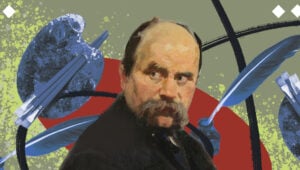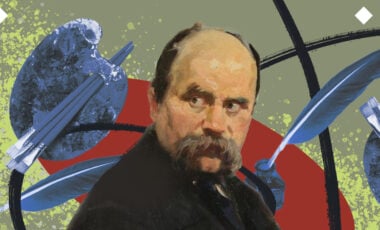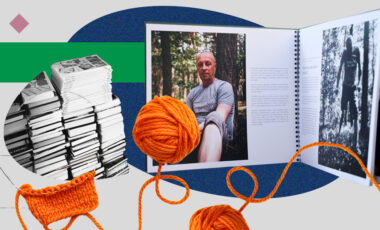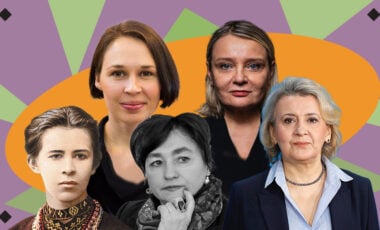Checkmate. How chess players in Ukraine play despite everything
Rubryka visited the chess court of Shevchenko Park. We learned everything from local chess players: how the state (doesn't) support this sport, who the chess garden’s director is, where the chess mafia comes from and how much chess players earn.
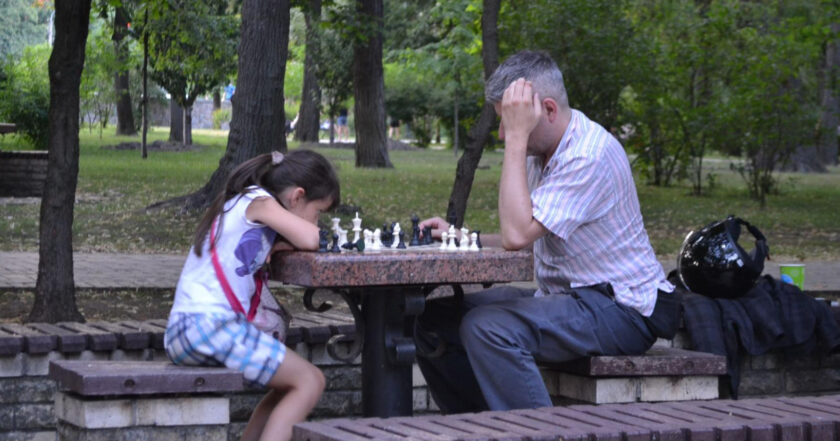
54 years ago, under the auspices of UNESCO and at the initiative of FIDE, a new holiday was established on July 20, International Chess Day. On this day, all kinds of themed events dedicated to chess are held in the world, and most of them are tournaments.
Such events will be held in Kyiv, in the most memorable chess spot of the capital, which all city residents know about — in the chess courtyard of Shevchenko Park, also known as "garden" or "lower field." RUBRYKA went there a little earlier to find out why this particular place attracts chess players so much since they gather here every day. Some people spend entire days here, and someone comes on weekends.
Who comes to the chess court?
It's easy to find a garden or a chess court. If you stand in Shevchenko park facing the monument to the poet, and then turn to the right and move to the park's corner, you'll find sheds and tables at which chess players sit with focused faces: from old to young, of different nationalities, with different social statuses:
"You have no idea what people come here," the chess players refuse to name their names. "These are Ukrainian millionaires who love to play chess, and they come here because they know that here you can play with a grandmaster. They're used to coming here," habitues say. It's at this moment that I turn my head and see a trio: one of the men has a jacket on a naked body. They've brought empty bottles in the bags. Two of them are sitting intently at the chessboard. The third is watching. The stereotypes in my head begin to creak and break, and the chess player that I'm talking with sees my gaze:
"Sometimes things like this happen. By the way, they play very well. They often come here, just, you know, they have a tragic fate. But they're good chess players."
Chess players have been gathering in the garden for several decades. Earlier, even before the 50s, the meeting place was the park at the Golden Gate, but later embassies were built there and the chess players moved here. Among those present in the court on the day of the report, some players have been coming here for 40 years, since childhood.
"People come here to have a rest. There are people, engaged in chess but who don't come here. They go to qualifying tournaments and make money from that. And we come here to rest, argue, talk," they say in the courtyard.
Garden's Director
Everyone who comes to play chess on the lower field knows that the garden has its own Director. A man in short beach shorts and rubber flip-flops moves from table to table with a bag with boards, pieces, a chess clock that anyone can rent for 20 hryvnia per hour for locals, and for a little more expensive price for foreigners who notice an interesting location. Of course, there's no question of any legal entity:
"It was about 10 years ago," the locals say. "We were here, and Dima somehow came up with an idea to lease boards. Of course, we all started making fun of him. Since that time, this nickname has been attached to him, the Director. But he's great. He arranges tournaments for us, brings watches and pieces. We all know him for a long time."
Chess mafia
There are only 8 Ukrainian chess players in the FIDE world chess rating. The best of them, Yurii Kryvoruchko, is in 40th place and has an ELO rating of 2699 points, and he lacks only 178 points to reach first place. A total of 29 countries are represented in the rating, and this number is already a good result for Ukraine because, in the absence of state support for chess as a sport, all these merits belong to the chess players, and not to the country.
It'd seem that chess is an exquisite sport, intellectual, calm, and measured. What risks can there be? But in the garden, they say that even here some games end in deaths:
"In chess, as in any professional sport, if you play strongly, but you don't have a sponsor, protection, security, you'll not be able to cope. We had strong chess players, for example, Bohatyrchuk: NKVD people visited him, he had to flee to Canada. And in 2016, a young chess player, Ivan Bukavshin, died in Russia. According to one of the versions, drotaverine was tossed into his orange juice, a large dosage caused a heart spasm.
In Ukraine, nowadays, a strong chess player also needs a 'backing'; the money won in tournaments sometimes has to be wheeled out of, and it's not always possible to take an honestly won prize without legal assistance or other third-party support."
How much do chess players earn?
It's challenging to make money on chess in Ukraine, so most chess players have primary jobs, many become chess coaches but only in children's schools; there's no adult Kyiv chess club, and the support of chess players by the state is ridiculous.
"When our team won the world chess championship 20 years ago, we received a prize from the ministry, $440 each. Having raised Ukraine on the national stage, we got ridiculous money," Vadym Malakhatko, a grandmaster from Kyiv, who's been playing for Belgium since 2006, says.
"To somehow secure a life for yourself with chess, you need to have an ELO rating of 2600 or more," the chess player from the garden says. "That's about $2000 a month in tournaments."
Unequal sport
"A man can put on a computer in every corner of the house. Coming home from work, he'll open a game on each of them, walk from one PC to another, write down moves and analyze, A woman will never do this, simply because after work there's no strength left for it, and there are still household chores: cooking, cleaning…" the chess player says.
If you look at the FIDE ratings, you'll find the overall rating of chess players and, separately, the women's rating. The fact is that men's tournaments are held separately from women's ones. This is how it was historically, and now, in the era of women's emancipation, the struggle for equality, and feminism, no one says that this tradition needs to be changed. A chess player from Shevchenko Park says the reason is that it's not profitable for women. At the same time, there's no clear ban for women not to go to men's tournaments:
"They just don't go there, because… why? Although it happens, albeit rarely, women come to men's tournaments, and even win.
The highest ELO rating in the FIDE list of the top 100 chess players in the world among women is 2658, among men, it's 2847. The difference of more than 200 points is surprising. Chessplayers in the garden explain:
"First, the difference is in thinking, we really think differently. Men are physically more enduring than women. Yes, in chess we don't need muscle strength, but we do need stress resistance; some games last for 6 hours, and all this time you're in tension. Chess is a very high workload, and professionals start having heart problems at the age of 25, and their eyesight worsens.
Nevertheless, in Shevchenko's garden, everyone plays on equal terms. Here we're sure that to be a good chess player you need hard work and dedication, and we continue to believe that not only new flowers will bloom in Shevchenko Park, but also the stars of chess tournaments.


